A ten-year anniversary might not sound like a great milestone; it can feel a lot longer when you consider how much has happened since then. Last week, prolific showrunner and filmmaker Mike Flanagan attended a screening of “Oculus,” his ten-year-old breakthrough feature, at New Orleans’s Overlook Film Festival, where Flanagan also received the event’s annual Master of Horror award. He’s more than earned it given the breadth of his successive work, from feature-length Stephen King adaptations like “Gerald’s Game” and “Doctor Sleep” to even more ambitious “remix”-style horror series adaptations like “The Haunting of Hill House” and “The Fall of the House of Usher.”
Flanagan’s successes as a horror filmmaker weren’t always a given. He’s been very candid with fans about his creative disagreements with Netflix, with whom he recently parted ways, and Relativity Media, who distributed early Flanagan movies like “Oculus” and “Before I Wake.” Flanagan’s also fairly open about some of the personal sources of his inspiration, including his struggles with alcoholism and his Catholic upbringing, both of which informed his tremendous “Midnight Mass” Netflix series.
Both Flanagan’s style and ambitions developed have considerably since “Oculus,” including his signature knack for monologues. His best work is defined by his fruitful collaborations with long-time partners like producer Trevor Macy and actress (and wife) Kate Siegel, both of whom first began working with Flanagan on “Oculus.”
I caught up with Flanagan last week in New Orleans, where we discussed the Bollywood remake of “Oculus,” his love of Carl Sagan, and his plans for talking to his children about religion.
I’ve read that “The Shining” was a big influence on “Oculus.” I assume you mean the movie rather than the book, even though I know the book was also a big influence on you. I assumed it was the movie in this case because of how the Overlook Hotel was filmed in the movie of “The Shining,” and how that inspired the way you shot “Oculus.”
Yeah. And when I first pitched “Oculus,” my elevator pitch was…Well, when I said “haunted mirror,” people would always laugh, but if I described it as a portable Overlook Hotel, that worked. That was what I said to Trevor Macy when I first met him. I said, “It’s an Overlook Hotel that you can hang in your house.”
The influence of “The Shining” is not only all over the structure of that story but also the type of haunting. There are also individual moments [inspired by “The Shining.”] Rory Cochrane has a full Jack Torrance arc, right down to a moment of lucidity at the end, which is from the book, but Kubrick jettisoned it. When we did “Doctor Sleep,” I took the ending of the “Shining” novel and brought it into the screenplay for “Doctor Sleep.” We shot the bit where Dan is threatening Abra, and then he kind of comes back to himself just long enough to tell her to run. So I’ve been stealing from “The Shining” my whole life.
For “Oculus,” you drew on the Jewish tradition of covering mirrors during a funeral to prevent lost souls from returning through the mirror. Can you talk a little about the research and traditions that inspired you for that movie?
Well, that’s the big one you identified: the Jewish tradition of covering up mirrors. When I first saw that as a child, it made me think about mirrors as portals. They were windows or doors into a space rather than flat surfaces. That really freaked me out as a kid, not to mention seeing all these adults very solemnly blocking the door, as though it was understood that if we didn’t do that, spirits would come through. To a kid, that’s radically terrifying.
There’s a cult value to antique mirrors, which are frequently used in rituals. We did a fair amount of research into supposedly haunted mirror legends, some of them being as simple as children’s games like Bloody Mary. You take children and force them to stare into a mirror, knowing that the human brain, when confronted with a reflection, will distort it. That’s the whole point of those Bloody Mary exercises: they very shrewdly understood that our brains don’t know what to do with an image of us, and if you stare at it long enough, your mind starts to change it for reasons we don’t understand. It’s incredible.
That made me think about how much misplaced trust we put into our reflection because we all have an incorrect image of ourselves. It’s backward, for one thing. It’s flipped horizontally, but it’s also flattened and on a surface that has its own warping and flaws. But we make this deal with our reflection every morning when we need it. We say, ‘This is right. This is what I look like.’ And it’s not, just like how when we hear our recorded voice, we’re surprised, even though we hear it all the time. The same phenomenon happens with a mirror; we’re just less aware of it. Then we’ll see ourselves in high-definition video and think: ‘Oh, wait, that’s what I look like?’ That’s how you know I’m only used to seeing myself from this very flat, dead-on angle. But if I see myself from slightly over here, that’s not how I see myself.
Whatever happened to “Dobaara: See Your Evil,” the 2017 Bollywood remake of “Oculus”? I remember when that was in theaters, and since then, I’ve also read that it wasn’t technically an unofficial remake since Trevor Macy has an executive producer credit (though I imagine that was tacked on later). You can’t even find “Dobaara: See Your Evil” on YouTube, and I’ve read that, somehow, scarcity has nothing to do with who owns the rights to the movie…
I have no idea. We loved it but were not aware that they were making it. Still, when they had finished the film, the director and the star came to Burbank and set up a private screening for us at the AMC Burbank theater. It was a really unusual situation for us because, first of all, there are all these unofficial Bollywood remakes in the market, and there’s nothing you can do about ’em. Aside from whatever legal rights or issues they may or may not have, I think it’s really cool when a story catches on in a way that someone wants to retell it through their own unique lens. And from a completely different culture! That’s really neat.
I was fascinated by [“Dobaara: See No Evil”]. Prawaal Raman, the director, was very nervous to show it to us. I said to him: “Dude, I just think it’s amazing you guys took the time and the resources to do this.” That movie is wild. They did a bunch of stuff we had wanted to do and didn’t. They had a whole section of the movie dedicated to the mirror’s history and what led to the creation of the mirror. I also thought the acting was fascinating. I thought it was an incredibly fascinating exercise, including the things that carried over and the things that they completely invented. Even the things that resonated with an American audience did not resonate with an Indian audience, and vice versa. I tried to really encourage that movie and celebrate it. I don’t know what happened to it though. I wish I had a copy.
I suspect that whatever deal they made, they probably made it with Relativity Media. And I know they made an above-board deal. My guess is that when Relativity folded, there was a lot of confusion. I don’t even know who owns “Oculus” at this point. When places have tried to screen the movie, they reach out to us and ask, ‘Who do we contact to try to get a print?’ I have no idea. Relativity is scattered to the wind.
Who owns “Oculus” is a big question for me. That’s what stopped us from having any meaningful conversations about sequels over the years. I’d totally be interested in doing that, but I don’t know who to talk to. We get different answers depending on where we go, and by the time we research it, it just looks too muddy. I think what likely happened is the fate of [“Dobaara: See Your Evil”] was probably tied to Relativity somehow.
That makes sense. I asked earlier about your research on mirrors and Jewish traditions because you’ve always struck me as a very close reader, especially given your work on series like “The Haunting of Bly Manor” and “The Haunting of Hill House.” What’s your reading and research process like for projects like that, and how do you sort of break the works of these authors down for your style of “remix” adaptations, as you sometimes call it?
I have two answers to that. There’s a certain amount of research that I do in life, and when it comes to religion, that started for me in my mid-twenties. I was raised Catholic and became very disillusioned with my faith. I had an existential panic, and I said to myself: ‘If I want to find God, I have to look everywhere.’ I spent about six years reading everything I could. I read the Talmud, the Tao Te Ching, and the Qu’ran. I tried to immerse myself in different faiths and traditions. I came out of that experience as a secular humanist and then started looking into different cultures’ supernatural legends, you know, different traditions that help inform the kind of stories I like to tell. So, that’s always in the background of my work. I always pull from that early reading when a project like “Oculus” comes up.
It’s a whole different thing when it comes to doing a remix-style adaptation. When we did “The Haunting of Bly Manor,” we were working with dense reading, since Henry James is an author with a huge library and his work is not the easiest read. But there’s so much there, and looking at something like “The Turn of the Screw” or “The Haunting of Hill House,” whose story fits perfectly into a feature-length adaptation and barely has enough to get to the two-hour mark. But my point is, if it’s my job to take that material and make a ten-hour “The Haunting of Hill House,” then I clearly need to break down Shirley Jackson’s story into a certain number of pieces, spread them out and invent connective tissue.
That process was completely different for “The Haunting of Bly Manor.” We used this method on “The Fall of the House of Usher” as well, since I had this huge and incredible tapestry of stories to work with. I thought, ‘Okay, let’s read them all. Let’s identify where they have thematic overlap, where they have overlapping character, and where we can either detect or create a connection. How do we take these disparate elements and try to make them serve one story, or try to make them work with each other?’
Authors tend to create a lot of those connections themselves, whether consciously or unconsciously. So when you pore over all of the Henry James stories, this invisible web of connectivity becomes apparent. Our adaptation became about excavating everything around that, strengthening things, and then making decisions that you’re going to meld certain things together to build this new sculpture out of everything. It’s an unwieldy process, and there’s a lot of trial and error. And in a writers’ room, it starts looking like high school book reports the first four weeks of the room.
The individual authors have such huge libraries of work, and we don’t all have time to read everything. So, I divided up the Poe stuff among my writers. Everyone had their assigned reading, and everybody presented what they read. They talked about their reading experiences and did a kind of academic analysis of the stories, which we all took notes on. And at the end of that month, each of us had read a huge percentage of what’s there. That gave us a kaleidoscopic look at any given author’s library of work. Then we started talking.
I can see why you’ve grown to love working with writers’ rooms.
It’s a blast. I try to read more than I ask the writers to read. I feel like I should read as much as I possibly can, but my perspective from reading is still very narrow. I’ll have writers who see connections and opportunities between this story, and that story, and that story that I never would’ve considered. You start to get a really exciting kind of mind meld when six people stare at the same giant pile of work. I’ll sometimes have a writer raise their hand and say, ‘I think there’s something more in ‘Morella,’ or in ‘Berenice’ that we can do,” even if it’s something as simple as: ‘he takes out his wife’s teeth.’ But that jibes perfectly with the story we were coming up with for Frederick Usher, which dovetails into “The Pit and the Pendulum” and so on.
You don’t really realize how intricate a project like this has become until you see a very motivated blogger or journalist put together all the Poe connections in “The Fall of the House of Usher.” I look at those pieces and think, ‘Oh, yeah, that’s right, we did all that.’ By then, we were so deep in it that the writers and I came out the other side as if we’d been on a long theme park ride. We have to remind ourselves that, ‘Oh yeah, that’s from this story, that isn’t just part of Frederick Usher’s natural arc.’ And then we have to remind ourselves there wasn’t a Frederick Usher when we started. It’s a very weird experience, just an enormous amount of reading and talking. That’s what makes the writers’ rooms really exciting.
In previous interviews, you said that reading the Bible in your twenties had a “destabilizing” effect on you because of inconsistencies in tone and characterization. Were there particular images, language, or juxtapositions that really made you uncomfortable or uncertain?
Oh, yeah. I mean, where to start? The Bible’s a mess, just speaking as a writer. <Laughs> I don’t think that’s a debatable point. Just structurally and in terms of certain basic contradictions. The thing’s a mess! The lead character’s personality changes halfway through the book and in a major way. A lead character, who we’re told is infallible and permanent and eternal, has a radical identity crisis. And when you look at it, especially after having spent time in a writers’ room, it all makes sense as a compilation of work by a group of very human writers from very different time periods with very different agendas.
But if you want to go verse-for-verse, as far as crazy stuff in the Bible that destabilized me, there’s some ridiculous stuff, particularly in the Old Testament’s rules and regulations that just don’t apply to people in a way that makes sense anymore. Those were the first things that gave me pause, like the directive for a menstruating woman to leave a village and return with a gift of two turtles. That’s given the same moral weight and is from the exact same book that people are drawing from to vocalize opposition to gay marriage. It’s two sentences away from where it says that you can’t wear blended fabrics. How are we picking and choosing what is given real moral weight in modern society? A number of things like that that really tripped me out.
An awful lot of writing tricks were also used throughout. One crazy example is the resurrection story in the gospels. If you look at the gospels in the order they were written…I think Mark was written first. There are no accounts of Jesus’s resurrection from the grave in the Gospel of Mark. And then in Matthew, you start to see that people interacted with Christ. In Luke, there are even more encounters with Christ, but this happened so far after the fact, and the stories are further embellished. That’s when you realize that people must have complained. Because in the last gospel, for the first time and quite out of nowhere, is the story of Doubting Thomas, which seems like a rebuke to anyone before this who had been like, ‘I don’t really buy that.’
These new details were added decades after the fact. And they said, ‘Well, there was someone else who doubted, too.’ [Laughs.] ‘Here’s a cautionary tale about that guy.’ It seemed so obvious when I read the Bible. Like with Adam and Eve in the garden: ‘Don’t ask any questions.’ Or, ‘This is what will happen if you ask questions.’ At that point, it’s not exactly sophisticated manipulation; it seems very haphazard. That stuff, which was meant to be read as the inspired word of God, put me back on my heels, thinking: ‘I see the writing technique and the mistakes.’ And for a book that’s divinely inspired, I would expect it to be better written, you know?
Then you have to parse out the ideas in it that I find are actively opposed to a successful society, or the ones that I view as immoral. Like, how is it that we have Ten Commandments and four of them are dedicated to how we treat God, and what we call him? Or them? But somehow rape and slavery didn’t make the list, you know? When I first read the Bible, I thought: ‘This is clearly the work of people.’ In the same way that you reevaluate your own writing ten years later and see how the world has changed and things are different. Not all of the work holds up, and to think that, about a book that’s held up as this spiritual, magical thing—that was a very destabilizing revelation.
Understandable.
That sent me on such a trip that, by the end of it, I was going through all these Holy Scriptures, and marveling at what they had in common, and where they radically diverged from each other. But you know what author finally connected with me, the one that helped me feel like I glimpsed something spiritually relevant and true? Carl Sagan.
“Pale Blue Dot” was a big one for you, right?
Yes. That gave me the experience I’d heard religious people talk about as I was reading his reflections on that image from Voyager and the Earth’s place in the Solar System, and our Solar System’s place in our galaxy, and that galaxy’s place in the cosmos. Suddenly, I felt like I had rushed into something so huge that I could feel stretching the limits of my human comprehension. I got very emotional imagining this tiny little speck floating out there, thinking about how instantly that makes our conflicts and our differences seem kind of sad and little. It gave me an incredible sense of meaning and importance of love and forgiveness during the time we have. I had a religious experience with science. That made me feel like true spiritual revelation comes from trying to understand the truth of our existence. Not the comforting stories, not what we want reality to be, and not a moral system that coincidentally happens to align with our personal preferences or helps to dismiss people who are different than us. All of that seems so wrong.
I try, on every project, to get it in there somewhere. I’ve gotten to tell a lot of stories that deal with religion and faith. It’s been a joy to try to put another perspective out there. You become a kind of evangelist when you try to share something that might resonate with people just because it’s true. The list of things that are true in the world is so small. If you can come up with anything that feels true, put it in your work.
One element of your cinematic education that rarely gets discussed is how, before you were a director, you were an editor, working on reality shows like “RuPaul‘s Drag Race.” What was that experience like, and how would you say it added to your tool kit as a filmmaker?
Being an editor has shaped my career on every level. I edited professionally for many years before anyone let me make a movie of my own. I did a lot of reality TV, commercials, documentaries and even some sketch comedy. I viewed it as a “day job” for a long time while I was doing it, and I wasn’t aware of how inaccurate that was until later when I realized that I had been building an invaluable skill set that set me apart from a lot of my contemporaries. I didn’t have a lot of confidence in myself as a writer or a director by the time I made “Oculus,” but I had a lot of confidence as an editor, and those are the muscles I relied on. Being able to envision the edit completely changed the way I write, the way I shot-list, and my goals and priorities on set.
Everything I do is just serving the edit, and because I’ve been lucky enough to edit my own work for just about my entire career, everything I do is about making sure I have what I’ll need when I get into the cutting room. I don’t shoot for coverage; I shoot very specifically, almost surgically. I know what we need, and I know when we have it. I know what shots I can sacrifice if we’re behind schedule and I know which shots are absolutely essential. I can tell an actor not to worry about a mistake if it’s in an angle I know won’t be used for that moment. I have never, ever stepped on set and said, ‘Okay, what are we doing here? What’s the plan?’ I’m an editor through and through, and that’s what defines my approach.
I single out “RuPaul’s Drag Race” because I read that NY Times piece that mentions your music video for “Jealous of My Boogie” and wondered what the story behind that video was. Was it a one-off, or was there more like it?
I was working on another series at World of Wonder at the time, a show called “Million Dollar Listing,” and I was sharing a cutting room with a “RuPaul” editor. We all got along and that led to me doing the “Jealous of my Boogie” video for them, and it was an absolute blast – though the song was stuck in my head for three months after the fact. I bounced around onto a lot of different shows at World of Wonder over several years, but that was one of my favorite experiences from that period.
Let’s talk about your use of monologues. Your projects’ monologues have an exceptionally cinematic quality, which is partly due to your longtime collaboration with director of photography Michael Fimognari. What kind of shorthand do you guys use when you communicate what you need from each other?
The first time we worked together was on “Oculus.” Michael’s become like a brother to me, and our communication has become almost monosyllabic. There’s a lot of monologuing in my writing, and as you’ve noticed, I’m sure there’s a lot of monologuing in conversation if I get going on something that I am passionate about. But I’ve been sitting next to Michael on set for almost my whole career. He’s an incredible artist. He directed two episodes of “The Midnight Club” and four episodes of “The Fall of the House of Usher.” We split that show in half, and when he wasn’t directing his episodes, he was DPing my episodes. So we sat together the whole time, and one of the things that blew me away when I was editing “Usher,” was that I sometimes had to remind myself who directed which episode.
Oh, wow.
We’ve become so synchronized that I look at “The Fall of the House of Usher,” and I don’t feel like it’s two different directors. It absolutely feels like different directors made “The Midnight Club,” because that was part of the show’s concept: it’s a showcase for different storytellers, so different episodes have different authors. But when it’s just me and Michael [on “The Fall of the House of Usher”], it felt like we came up with the vision for that show. We were in such lockstep and we executed the same show. Sometimes, he got up and talked to the actors, and sometimes, I did. Sometimes he called action, and other times I did. Beyond that, it felt like what we had always done.
From a process perspective, Michael and I shotlist every frame of everything we do, whether it’s a movie or a show. Ever show we thoroughly shotlist in prep before we ever step foot on set, so Michael and I have made the thing before we’ve even gotten there. And we’ve had every conversation about why the camera moves here, and what’s important about this scene, and what’s the thing we have to make sure we catch. What’s the thing we can’t live without? What’s a shot we can sacrifice if we’re behind schedule? What is the heart of this moment? What’s the point? We’ve talked all of that out.
So when we finally get to set, we have this giant shot list that we distribute to the crew every day. And it’s more important than the script at that point. Now the crew knows every camera setup, whether they need to build the crane or the dolly, and things like that. We’ve ordered the shots so we know what we’re starting with and where we’re going to end with. That makes things incredibly intuitive for the actors, who can look at the shot list and say, ‘Oh, my closeup is two setups away, so I’m gonna just relax on this one.’ And it makes the whole day very efficient and gives us enough time to change things to play and discover things because we’ve built the scaffolding, you know?
Michael and I have a working relationship unlike any other one in my life. Kate calls him my other wife. I became fond of saying that I won’t take a selfie anymore without him. He’s the best. And he’s now at a point where I think he’s outgrown being a director of photography. He’s directing his own stories and he’s doing it really, really well. He had just finished a movie of his own; he wasn’t available to shoot my new movie, “The Life of Chuck.” That’s the first time in a long time that we haven’t worked together. I missed him every day, but he was directing his own movie in London. He came to my house from post-production on his movie, and he watched a cut of “The Life of Chuck.” I’m seeing his movie on Tuesday. We’re going to trade notes and just keep going. I very much hope that I’ll end my career sitting next to him at a monitor as well. There’ll be ebbs and flows, though, because his career needs his full attention.
Let’s backtrack for a moment: the “Shining” connection in “Oculus” stands out partly because the way you described “Midnight Mass”’s opening scene, of a drunk driver killing a bystander, speaks to how you and King were really always joined at by mutual anxieties, particularly the fear that your drinking would wind up killing somebody else. You and King not only share a sober anniversary, but you’ve also mentioned being inspired by his writing about getting sober. He and Roger Ebert. I wondered if you could talk a little about those two influences on your own journey with getting sober.
King writes a lot about his own journey in On Writing, and Ebert goes into great detail about his sobriety in Life Itself. Both were very important to me; King has been my literary hero since I was a kid, and I believe Roger Ebert was the greatest film critic we ever had. He was an instrumental part of my cinematic education, as his reviews weren’t just about critiquing an individual film but also stepping back to evaluate a movie’s place in the medium’s history. He was a great lover and scholar of cinema, and you learned a lot from his reviews. So these are two people that I hold in enormous regard. They are both so open, thoughtful, and generous about their sobriety, and they each helped me find my path. They also showed me how important it would be for me to be as open, thoughtful, and generous as they were if I ever reached that place. I only hope that I’ll be able to provide the kind of comfort, perspective, and encouragement that I found in their words.
One reason I’m convinced you’re the American horror filmmaker of the moment is that you’ve not only made monologues appear cinematic, but the fact that you focus on monologues makes a lot of your work political without being explicitly political. For example, in talking about “Midnight Mass,” you’ve said that fanaticism is “incremental.” That feels very timely. Do you see an incremental sort of fanaticism in American or global politics? Or has that not been your experience?
It’s interesting and sad to me that monologues are now considered weird. They used to be the dramatic standard, especially in theater. I was a theater minor in college, and I loved it. And some of my favorite movies feature monologues, like “Paris, Texas,” which has one of the best monologues ever put to film. Or “Jaws,” a huge blockbuster that hinges on a monologue. That was not regarded as a novelty like it is now. Part of it is that attention spans have been obliterated, so you notice when people speak for more than a few lines because the cadence of our entertainment has changed so much. I love monologues because, for me, it’s a chance to play with the beauty of language and to dig into really big ideas.
To your point about incremental fanaticism: holy shit, yeah. I think that in American politics when I first started writing about the character of Bev Keane in “Midnight Mass,” I thought she was an outlier and an extreme example. I would call her a moderate now. [Laughs.] But when we were first playing with that character, I thought that people might have to stretch to believe that she exists. Now I think Bev Keane is the least of our problems. She’s kind of quaint.
I think when you look at the power of simple language repeated, and you look at our former president’s rallies: those are monologues, some of which are written, some of which are repeatable to the point where he’s hammering home the exact same things over and over. There are also other speeches where he goes off the cuff and riffs. To a captive listener, that stream of words can’t help but alter their perception of the moment. That’s why, when you look at authoritarian dictators and politicians in general, you don’t have to look very long to see these moments where they speak for a very long time alone.
Monologues are not only at the heart of leadership but at the heart of brainwashing, too, you know? They’re built into the structure of our masses in every religion. There’s always a portion of every service that’s devoted to a monologue, and it’s not one that’s read from the scriptures. It’s expected to be different, relevant, and timely in sermons and in homilies. All of that is about cementing certain belief systems and behavior and letting that evolve and further infiltrate how we behave.
I think that the incremental fanaticism that we see in global politics is only getting worse. Weirdly, it’s not even the big speeches that are doing it. I think a lot of the radicalization and a lot of those incremental moves are now coming from soundbites. It’s coming from taking those big speeches, cutting them into a couple of tiny sentences, and then pushing that on TikTok or Instagram, where people ingest these tiny little bursts that they chew on and chew on and chew on and repeat and repeat. And they can’t source those speeches.
“Midnight Mass” obviously struck a chord with a lot of Catholic viewers. I’m especially interested to hear how it affected your parents, who are still devout Catholics or were until recently. You’ve said that the show challenged their beliefs in some ways. Can you elaborate a little on that?
They are very much still devout Catholics. I don’t know that the show challenged their beliefs, but it certainly challenged them on some other levels. They were vocally nervous when they first learned about the project and what my intentions were, and on more than a few occasions made their case that I shouldn’t pursue it. But to my great relief, my parents really loved the finished show. I think they were afraid it was going to be something that it wasn’t, and I think they were gratefully surprised to find that it wasn’t the attack they perceived it to be – or, at least, it wasn’t attacking the things they were afraid it would attack. I imagine it’s very uncomfortable to watch your child engage in an in-depth critique of something that is a major part of your life, especially when that child is rebuking large elements of their upbringing. I know they were concerned about how it would be rendered and how it would be received.
Ultimately, this story is critical of fanaticism, fundamentalism, and human frailty more than anything else. They have since commented about how the show isn’t an attack on the faithful but rather raises vital questions that really need to be addressed, and particularly responded to its messages about sacrifice, virtue, and forgiveness. The last scenes really hit home for them, and I’m really glad that they loved the show.
In earlier interviews, you’ve also talked about how “facts don’t matter anymore. What matters is we believe.” Do you think that being in an environment where facts don’t matter has affected the way that you tell your stories or present your dramas?
I try to stand up for facts or for the concept of a fact and to show characters who engage in critical, rational thinking. As far as my protagonists’ behavior goes, I have only infrequently allowed their beliefs to trump their rational thinking. There are times—and “Oculus” is an example—when a character’s disbelief in something makes them vulnerable. That’s a horror trope, and in this case, we’re talking about a character who had done an enormous amount of rational thinking, but his preparation fails him. That’s not something that I love about “Oculus,” but it also wasn’t done maliciously. I think that these days, I try very hard to provide examples of the success and the importance of critical, rational characters who are empathetic, kind, thoughtful, and not prone to either put their faith in the wrong things or to give them up cheaply.
I’ve been able to talk about that fairly overtly in some places. For example, in “Midnight Mass,” I could have characters monologuing about the importance of these things. But I found that mainly resonates with people who tend to believe it already, making me guilty of the same thing I’m criticizing. I thought that I could reach a bigger audience and maybe serve my own agenda better if I showed characters engaging in that behavior rather than talking about it. But yeah, that’s absolutely changed the way drama is presented.
We used to talk about suspension of disbelief as this major outcome in writing since we’re dealing with an inherently skeptical audience who will never accept a supernatural premise or a plot point simply because you presented it. I think that landscape has entirely changed because an audience’s suspension of disbelief is no longer an absolute. You’re dealing with an audience who is ready to believe things, who are trained, in some cases, to believe things. So, how do you challenge or use those beliefs to tell the story you want to tell? How do you tell stories responsibly, knowing that your story can be carved up into a million things and that individual lines can be pulled out of context and recycled on social media with a completely different agenda? And tell stories in a way that hopefully encourages an audience that is thoughtful and willing to think critically about how things are presented. If you can encourage that, then storytelling can get back to the business of making the world a little better instead of eroding that critical thought.
I am sincerely curious how you and your wife will approach your children about religion, whether through a formal education or other means.
Kate and I don’t want to stop our kids from learning about religion or certain religions. Our feeling is to be as open and available as possible, to discuss without any censorship any questions they have about faith, religion, where they came from, what we’re all doing here, what people believe, and why they believe it. I don’t know the answers to those questions, and it’s important for me not to lie to them. If my child asks, ‘Is there a God?’ I won’t say, ‘No.’ I’ll say, ‘I don’t know.’ Or, ‘let me tell you what I think, based on what I’ve asked and researched in my life, but that’s different than what your grandparents think.’ We’ll talk to them about it. ‘Do you want to go to church? I’ll take you.’ I never want to stop them from trying to understand the world. I think, for better or worse, an understanding of religion is critical, especially because religion is actively shaping our society, our laws, and our government. It shouldn’t, but it is.
I want my kids to be armed with as much information as they can so that they’re not easily swayed when people try to comfort them. So if they’re scared about something in the world, they’re not quick to accept someone offering to assuage that fear in exchange for something. I want them to be able to identify oppression, exploitation, and the erosion of other people’s liberties—I want them to see that for what it is and not fall for smokescreens. Towards that end, a religious education is deeply important for my kids. And not just one religion.
There was initially a lot of conversation with my parents about whether or not we’d baptize our kids. I said, ‘We’re definitely not gonna do that. Only if they choose themselves to be baptized later on, then I will support that wholeheartedly’…with a lot of conversation. Especially about why that’s happening. ‘Why is this important to you? What are you getting out of it? What do you believe? What don’t you believe?’ I’m not gonna do that at a time when they’re unable to understand or consent to what’s happening. That was a difficult conversation to have with my parents, but I think they believed that I was going to stop my kids from having anything to do with Christianity. I had to explain to them, ‘No, not at all—I want them to know about it more than you do.’ [Laughs.]
You can view the original article HERE.





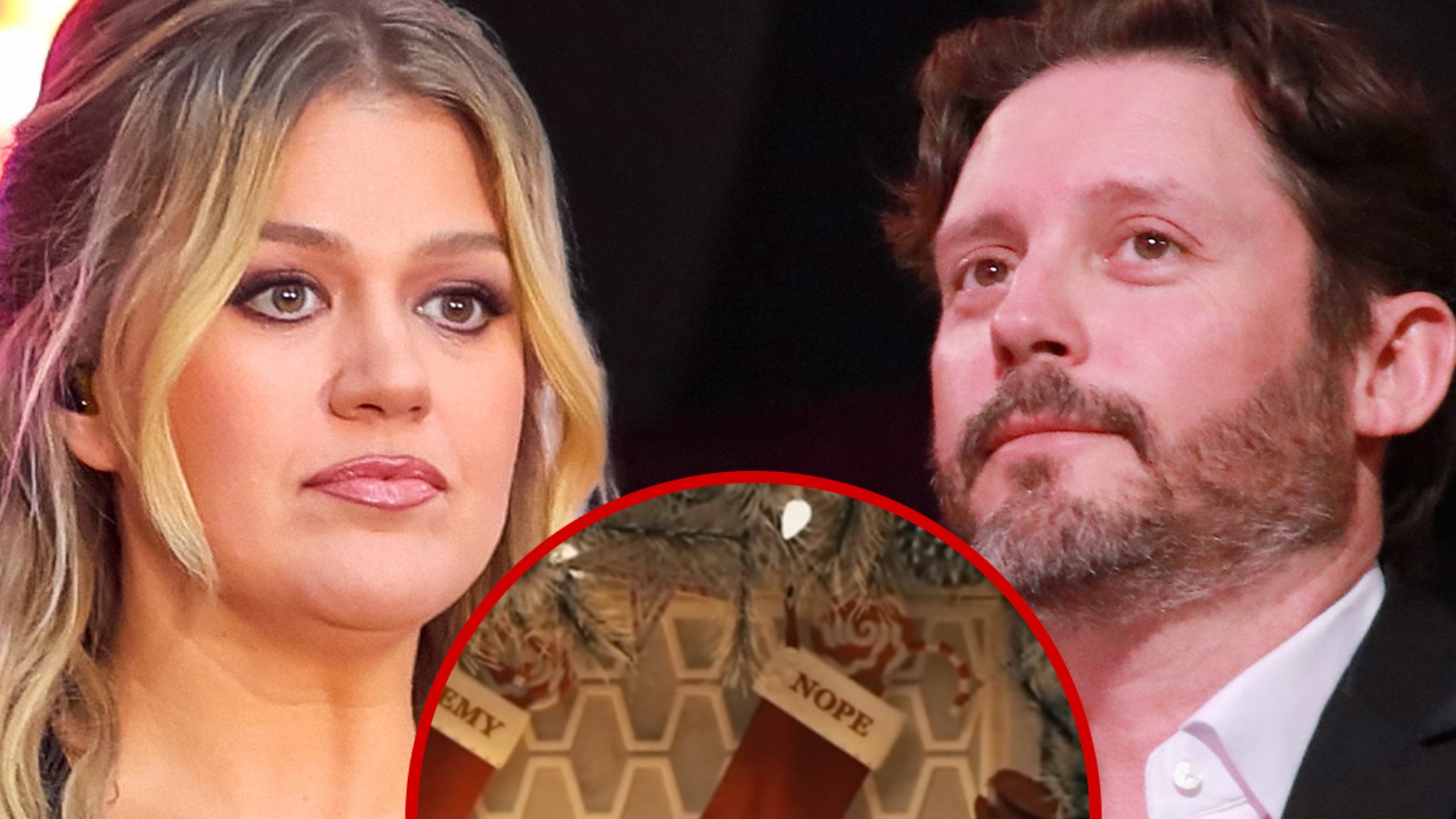
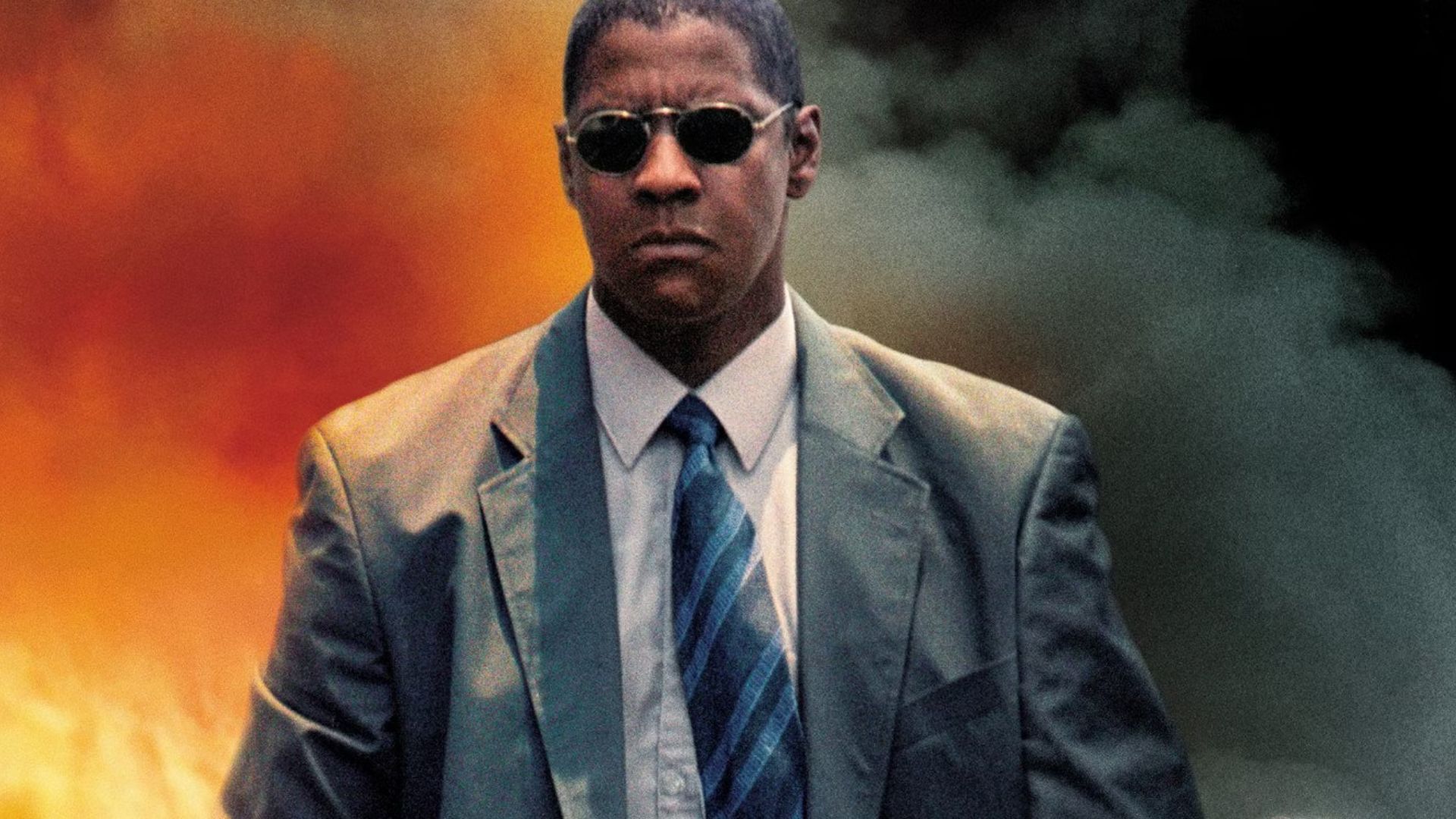
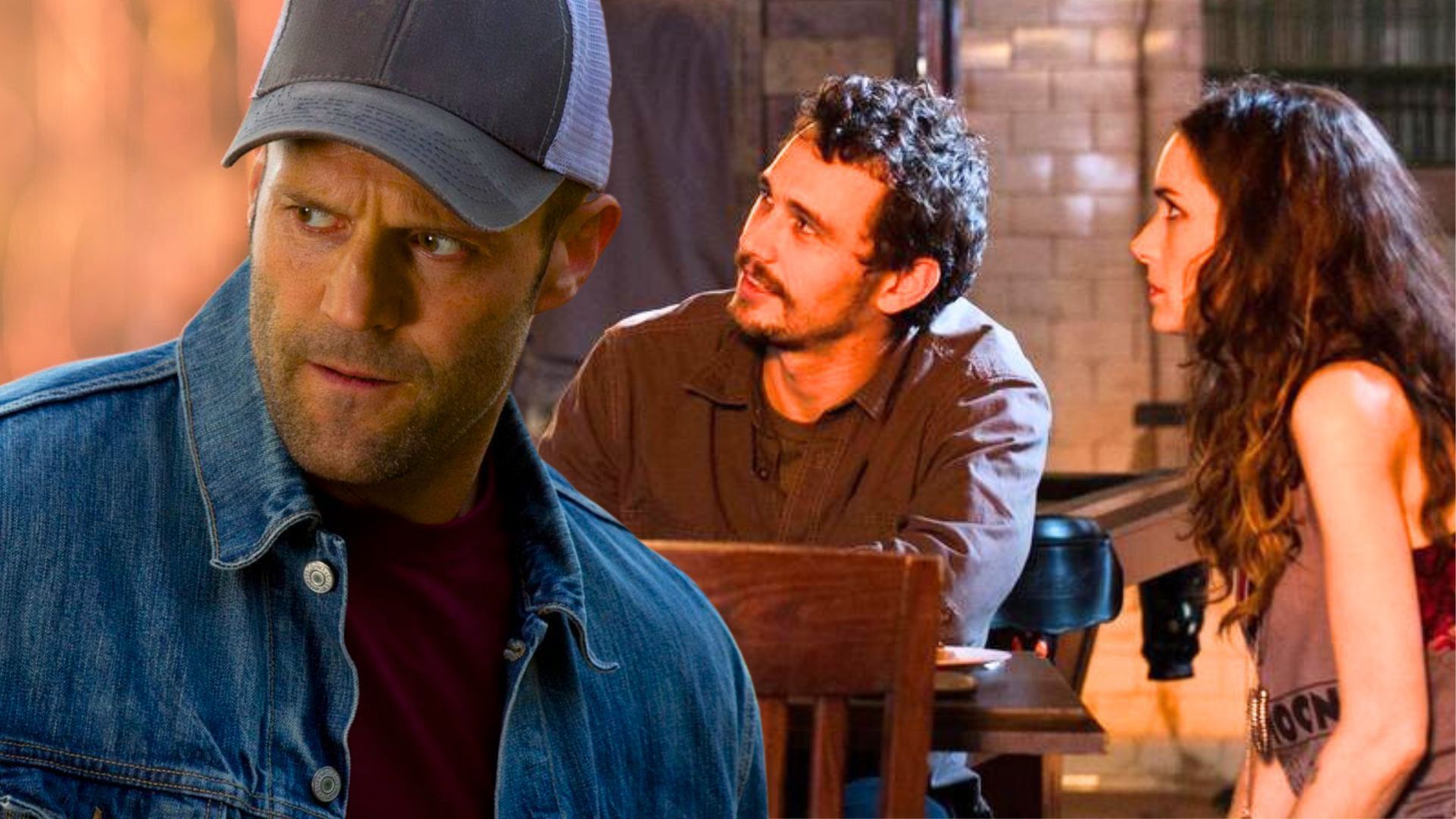

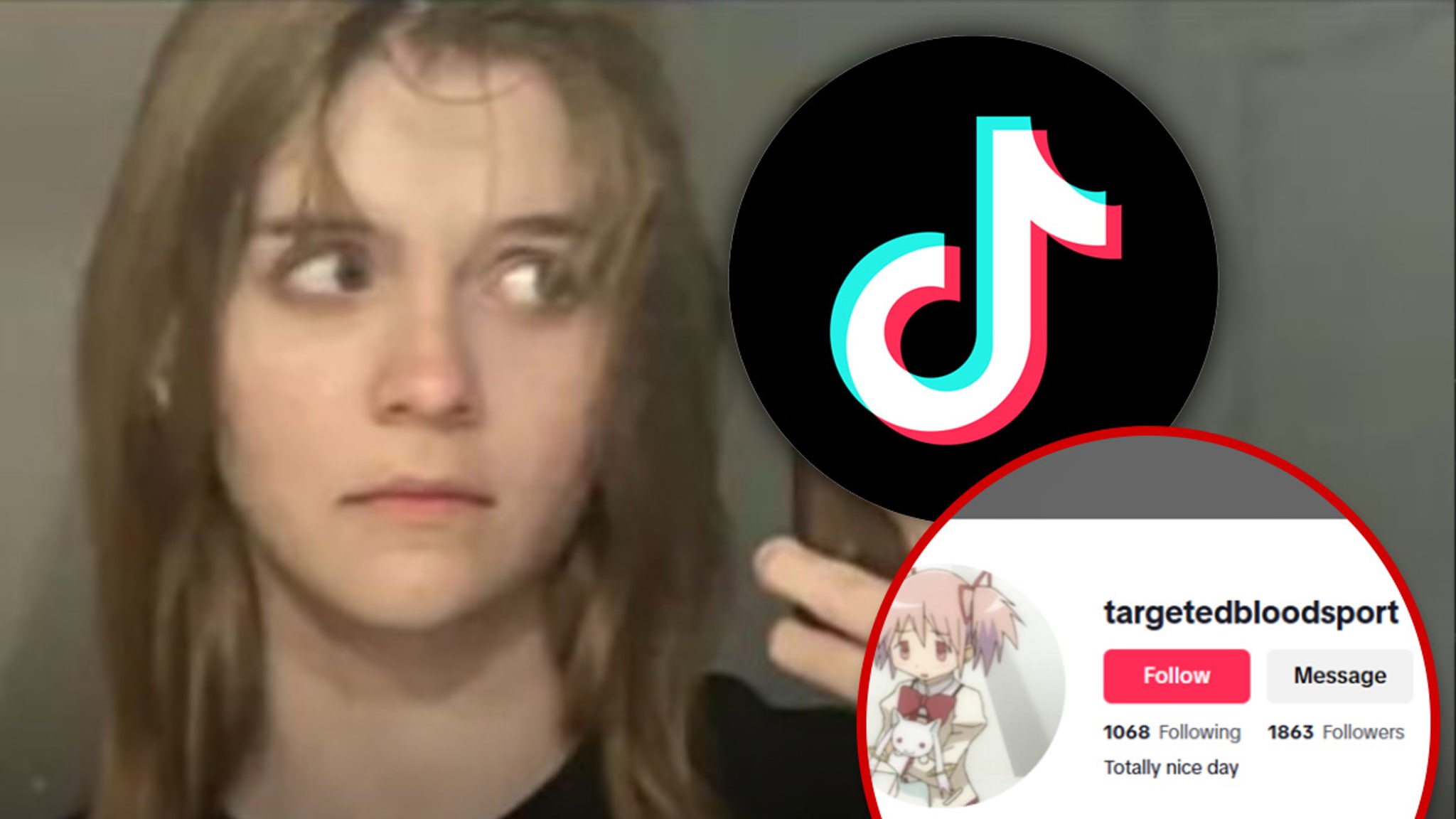
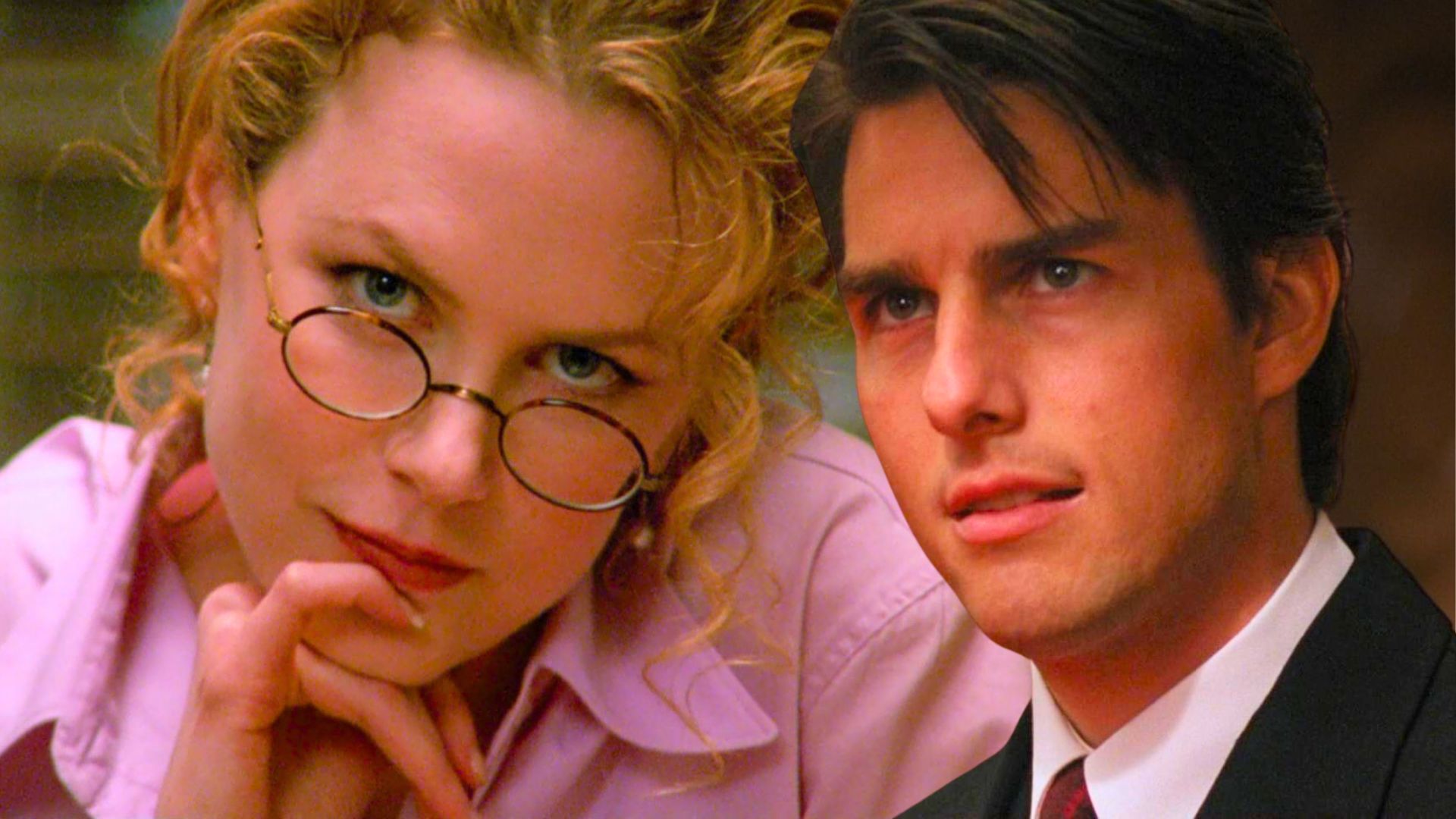
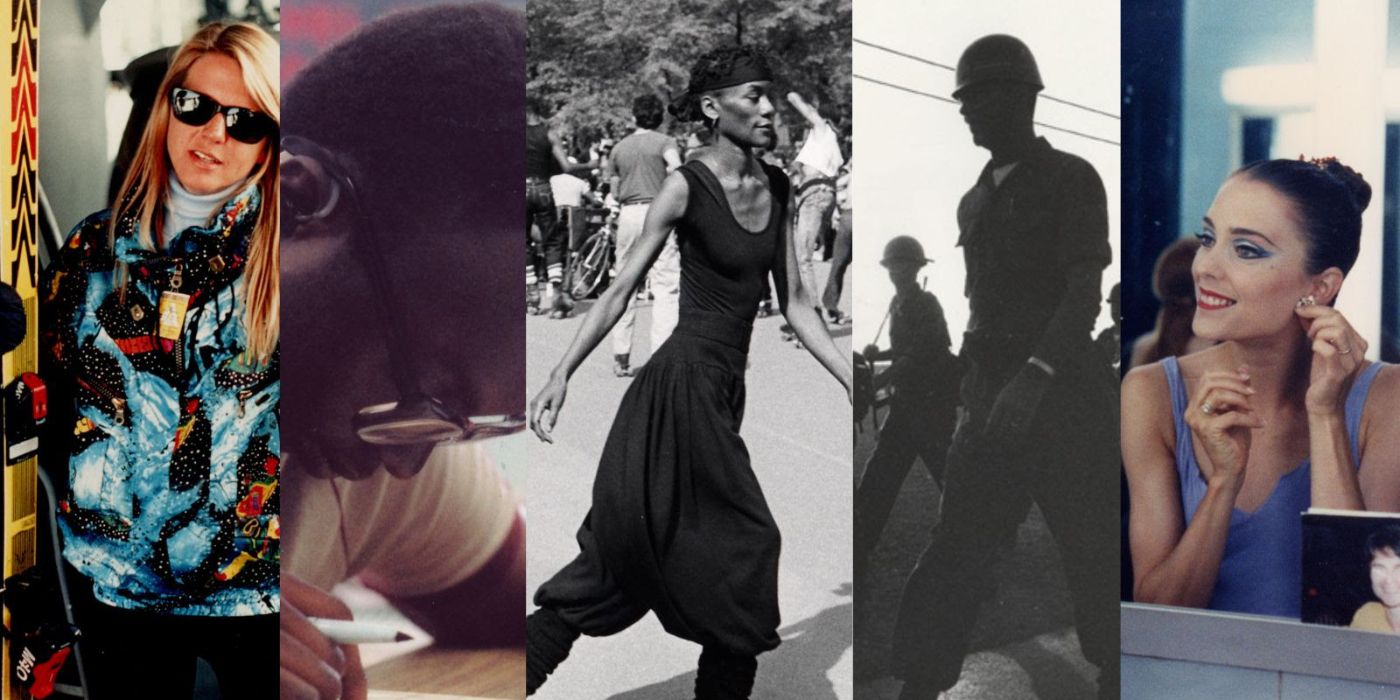
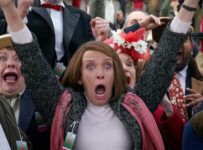
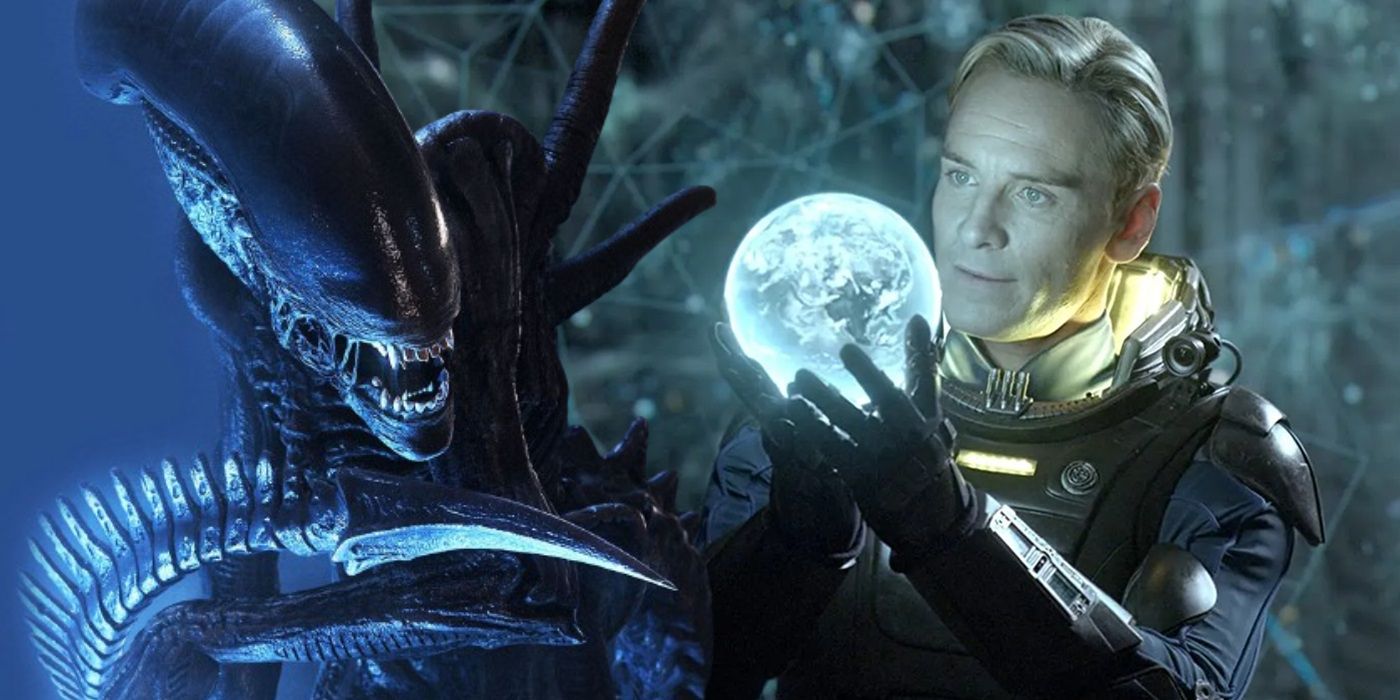

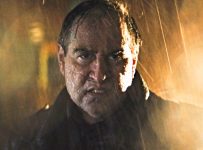
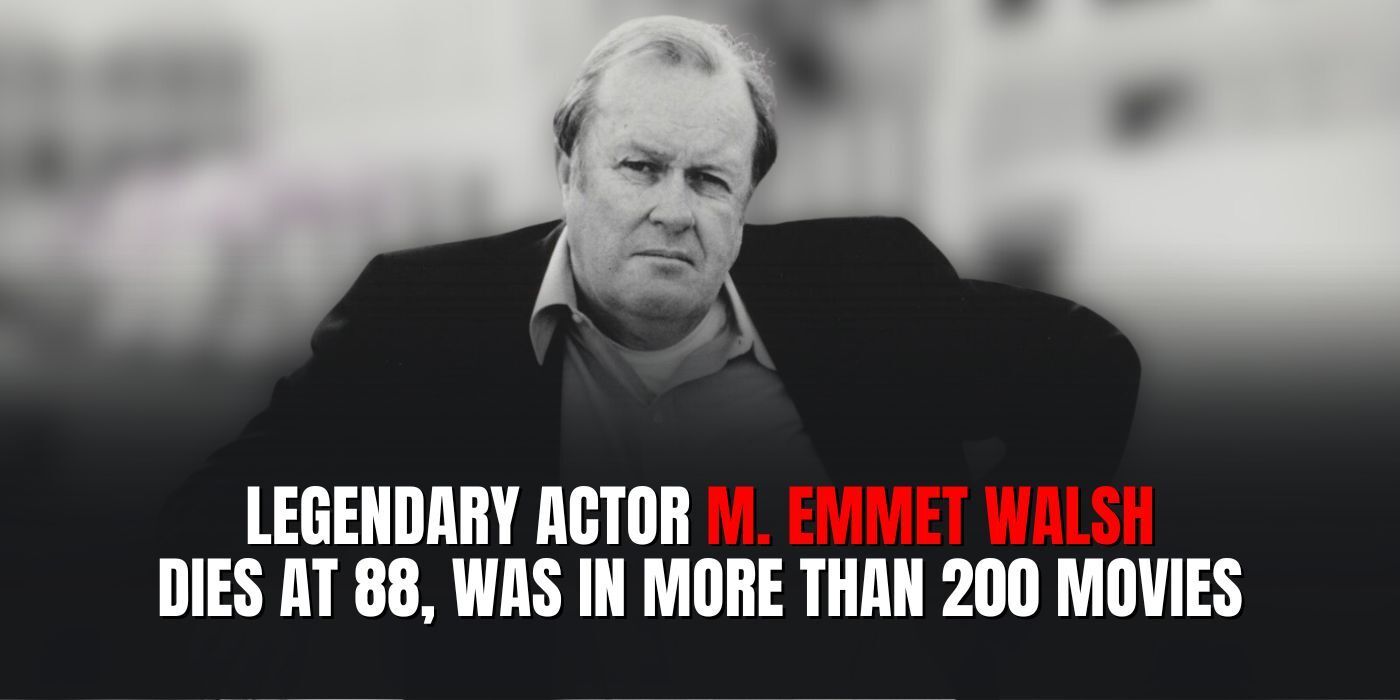
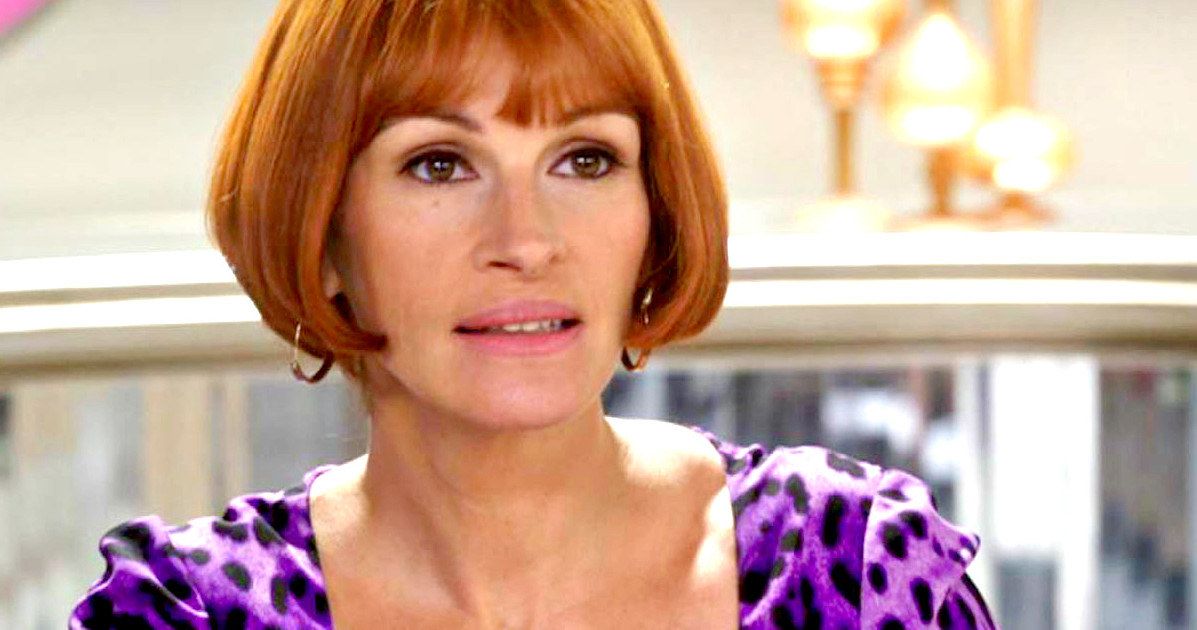




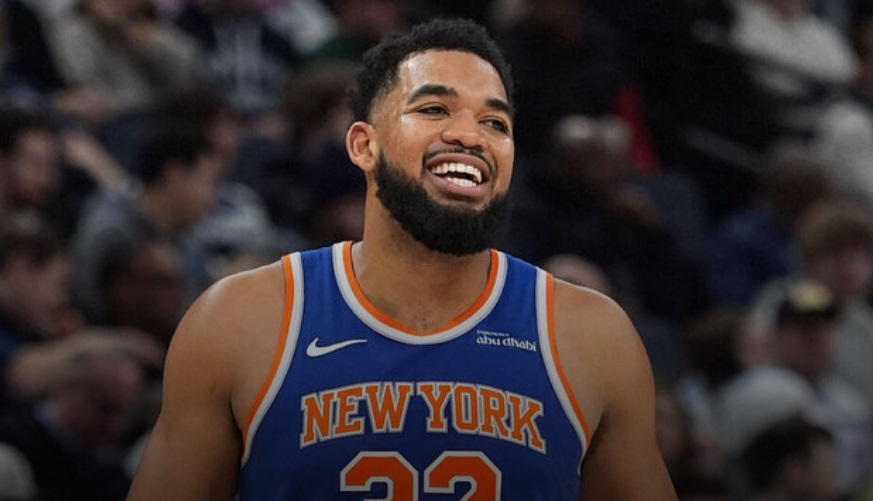




:quality(85):upscale()/2024/12/20/830/n/1922564/5c67fdcd6765bdc5795da2.94470909_.jpg)


